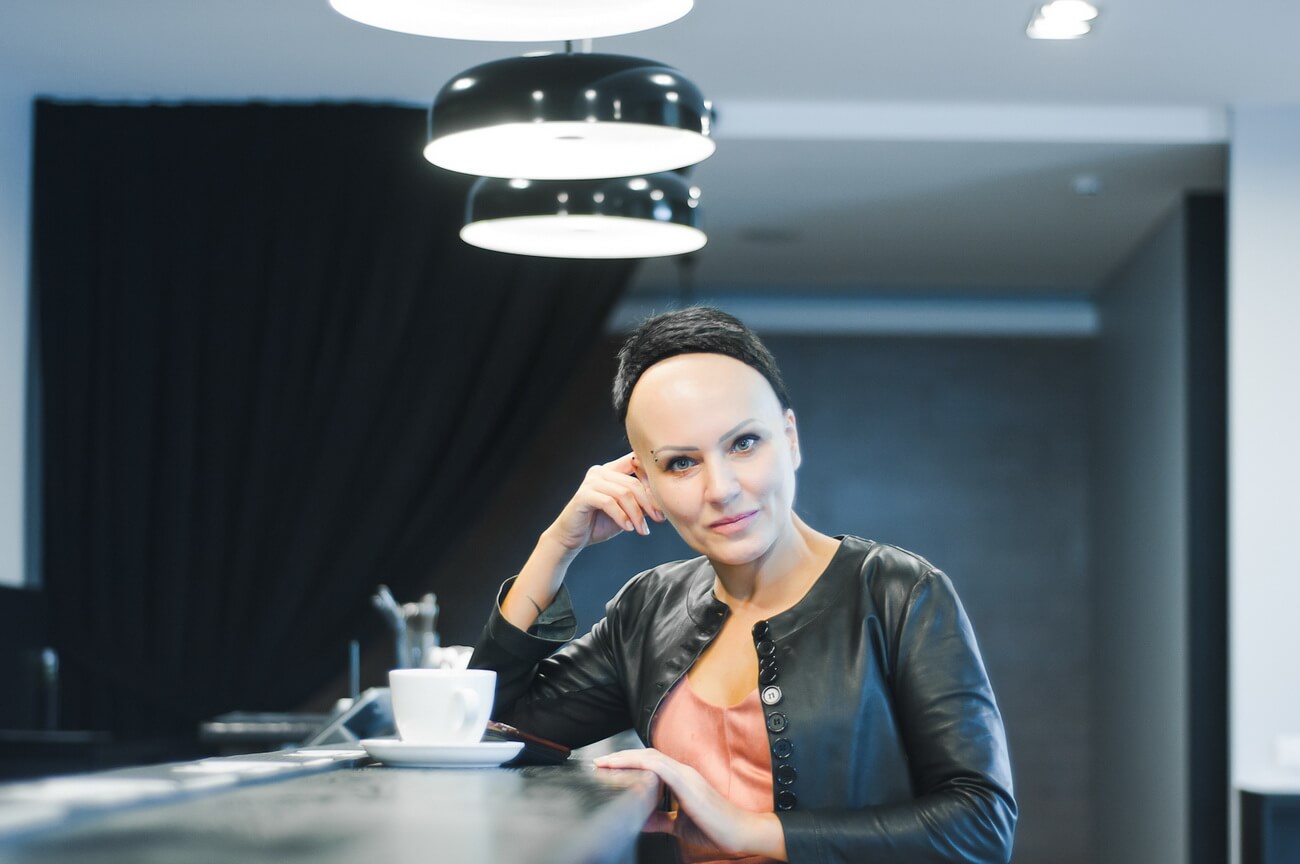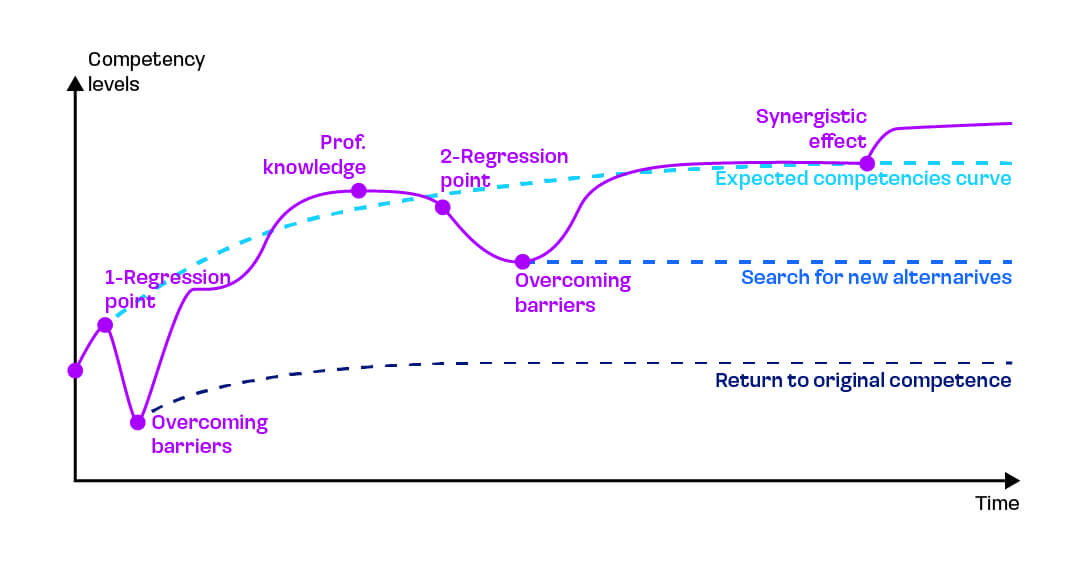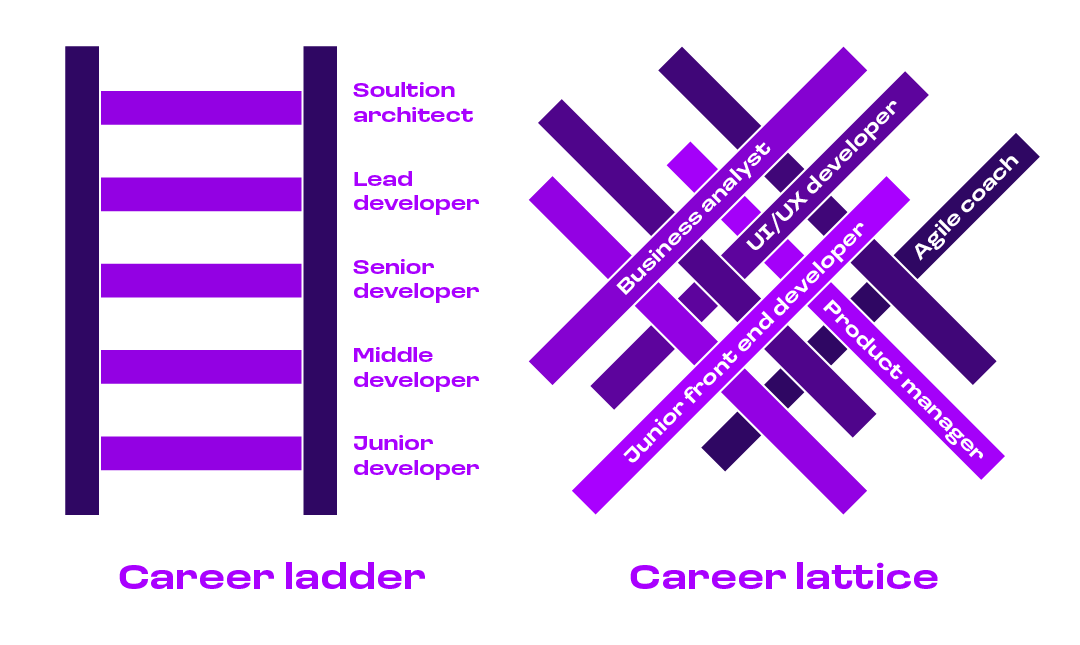How to find your professional vocation and is it worth looking for?
Career development mentor Amina Idigova told us what the profession consists of today, why the career ladder began to be called a lattice, and also revealed the secret of success especially for the Anywhere Club blog.

What is a vocation, and does it exist in 2022
Many people sincerely believe that everyone has their own “vocation”. That once you find yours, an insight will occur to you immediately, and your life will magically take shape by itself. People spend time on endless tests and consultations in search of that one thing in life that will give them meaning.
Numerous research studies confirm that vocation as such does not exist. Or at least that a vocation is not a starting point. Instead, a vocation is a destination. What you spent 10,000 hours on will become your vocation. Nobody was born Mozart, not even Mozart.
Instead of a vocation, there is a constant accumulation of experience, which we later endow with some value or meaning. The concept of vocation is a construct of interests, knowledge, and experiences that a person will reassemble with regularity throughout their life. Finding yourself is impossible. But you can create yourself.
In fact, what we call a vocation is the result of a complex web of inclinations, intuitive choices, regular practice, curiosity, opportunity, and chance gains that generate countless scenarios. The only thing that can be said with certainty about the “vocation” is that it transforms every second.
Another piece of bad news is that even if you find a profession you like, you still have to constantly change. The professions themselves remain, but their essence and content are constantly transforming with the development of technology. It is likely that you will never become an expert of great depth in anything. As soon as you get comfortable in a new profession, it suddenly seems that everything changed a long time ago. To paraphrase Alice in Wonderland: “Just to stand still, you need to run very fast, but to get somewhere, you need to run twice as fast.”
Better to do than to do better
The book " Art & Fear: Observations on the Perils (and Rewards) of Artmaking" (D. Bayles, T. Orland, Y. Sergienko) describes an interesting experiment. In a pottery class, the teacher divided the students into two groups. He gave one group the task of sculpting pots “by weight.” The student who created 50 pounds of pots would receive the high mark. The second group was told to fashion only one pot, but of very high quality. They were to be judged by the quality of that one pot.
A funny thing happened. The highest quality pots among all the students were created not by the group that worked for quality, but by the group that worked for quantity. Why? They tried to do more, and learned from their mistakes in the process. Those who cared about quality spent a lot of time theorizing about what the "perfect" pot was, but their actual result was so-so.
It's the same with vocation. To master a new profession, it is very important:
- to be able to start
- to not give up with the appearance of the first difficulties.
It sounds trite, but you can consider the ability to start as 60% of your success. The ability not to quit is another 30%. Other factors such as knowledge, skills, connections, experience, money and more are the remaining 10% of success, but they can be neglected as long as you have the first two.
The main thing here is not to confuse stubbornness with perseverance. Stubbornness is when you do the same thing over and over again but expect a different result. Perseverance is when you experiment on the way to a result, and test different hypotheses for its implementation.

It’s important to remain curious. Don’t be afraid to try, or be afraid to make mistakes. Don't wait for perfect solutions. Act. Generate, launch, and work out different ideas. Be able to change perspectives. Allow yourself to quickly fail and quickly correct your mistakes. Any training schedule shows that there are many ups and downs along the way, until you reach the conditional “productivity plateau”.
Forward doesn’t mean up any more

The world is changing rapidly. The borders between professions are blurring. Today, one solid skill isn’t enough.
The profession today is a puzzle of many functional disciplines and the ability to flexibly switch between them. A career has ceased to be a “ladder,” and instead, it is a “career lattice.” This allows you to move in any direction: forward, backward, laterally, or even to another subject area. Forward doesn’t mean up anymore. Whatever diplomas you collect, you will not reach a magical point when you are done - you will have to study all your life. The only viable educational model in the 21st century is Lifelong Learning. The monopoly on knowledge no longer belongs to anyone, knowledge has become readily and widely available. The quantity of knowledge is growing exponentially and is limited only by your ability to turn it into applied skills. We can say that the era of knowledge is over, the era of thinking is beginning.
Instead of looking for a vocation, it's better to do a regular audit of your skills and abilities. Most of them can be divided into four different "suitcases":
In the first — everything related to a specific job, in a specific company. This includes knowledge of specific functionality for the position, knowledge of specific tools, and knowledge of the specific products and processes of the company.
In the second — general industry skills, including the understanding of a certain area of business, (finance, logistics, education, or information technology, for example). In essence, this is the “mileage” for this industry, expressed in years (6 years in finance, 3 years in marketing, 2 years in IT, and so on).
In the third — your personal qualities and abilities, such as the ability to negotiate, manage projects and people, speak, teach, launch a product, calculate a business model, and much more.
In the fourth — your professional DNA, your own approach to tasks, your personal communication style, your special way of generating ideas and extricating yourself from difficult situations, your unique image, your charisma, and the atmosphere that you create with your presence. In other words, everything that can’t be copied. In this suitcase are all of your connections, all of your networking, and your personal reputation.
The good news is that in any unclear situation, your risk is limited to one suitcase — the first one. The remaining three will stay with you. They are your unsinkable, fireproof assets. Invest in fireproof capital that you can rely on in a crisis.
Don't chase your vocation, let your vocation chase you.
We invite you to ask questions about IT to our community in Discord.

.png)
